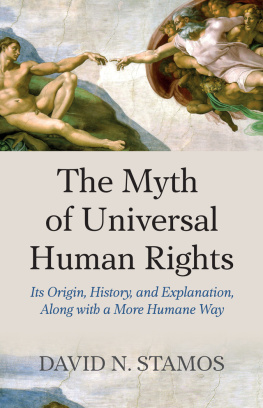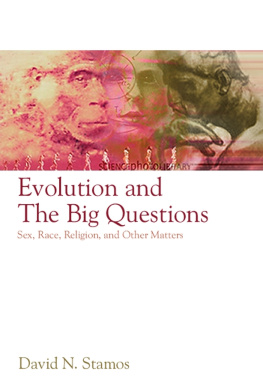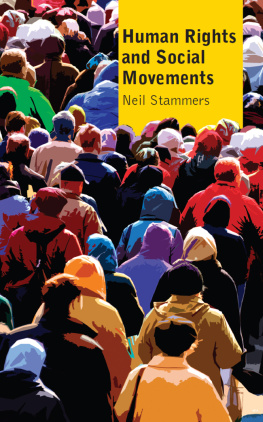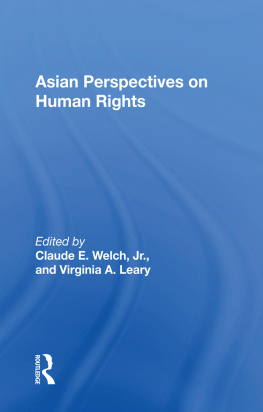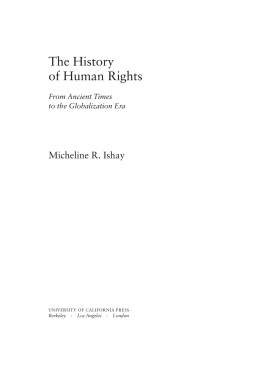David N. Stamos
Copyright 2013, Taylor & Francis.
All rights reserved. No part of this book may be reprinted or reproduced or utilised in any form or by any electronic, mechanical, or other means, now known or hereafter invented, including photocopying and recording, or in any information storage or retrieval system, without permission in writing from the publishers.
Disigned and Typeset in Adobe Garamond by Straight Creek Bookmakers.
FIRST AND FOREMOST I WANT TO THANK JASON BARRY, my editor at Paradigm Publishers, for his wisdom and guidance, which was quite extraordinary here. The book was further improved by the perspicacity of Paradigms project editor, Meredith Smith, and copyeditor, Antoinette Smith. Thanks are also due to the anonymous referees (especially the one who suggested a change in the order of the chapters) and to Ryan Chynces, who provided the spark that led away from a paper in progress to the writing of this book in the first place. In addition, I want to thank the individuals, organizations, and departments that provided me the opportunity to lecture on this topic and receive feedback on some of its ideas, specifically John Xu and Katie Kish of the Centre for Inquiry in Toronto, Mauro Buccheri of Founders College at York University, Brian Garrett of the philosophy department at McMaster University, and Andrew Sneddon of the philosophy department at the University of Ottawa. There are others I want to thank who contributed to this book in one way or another, many of them in terms of useful feedback on one or more parts of the manuscript at various stages of its growth in addition to my editor and the anonymous referees, namely, Robert Aunger, Joshua Bachynski, Jason Buccheri, Michelle Devlin, Megi Duraku, Amir Ghorashi, Sepideh (Sandra) Javadi, Matthew Kramer, Bernie Lightman, Tyler Lin, Adam Riggio, Samira Sahihi, Tamara Schwarz, Gloria Segovia, Neven Sesardic, John Shafer, Andrew Sharp, Marc Soscia, Julia Tourianski, Minwan (Mindy) Xu, and Carol Yuen. Finally, I want to unconventionally acknowledge the many nonhuman animals, both past and present, with whom I have had the pleasure to share lifein their own way, due to the wonder of their being, they helped to write the final chapter.
WHY A BOOK AGAINST HUMAN RIGHTS? It sounds downright devilish. What kind of person would want to write such a book? Does the author hate people? He must. Maybe hes a neo-Nazi and this is his own Mein Kampf. Surely this should not be allowed in this day and age!
These sentiments, and others like them, are bound to be the response of many to the very title of this book. And the answer to them all is simple and straightforward: a person who puts truth and evidence above ideology, a person who doesnt hate people but doesnt hate animals either, a person who believes that truth and compassion are not mutually exclusive but are often perfectly compatible, a person who greatly values life and believes that matters of ethics and justice are too important to depend on myths.
Imagine ancient Greece at its peak, during the fifth century B.C., with the public believing in Zeus and the rest of the ancient gods, and the few philosophers who dared to question or challenge the existence of those gods being persecuted for impiety and blasphemy. Today we look back at the situation with puzzlement, including condescension. Its so obvious to us that their gods were a myth. But this is because we have the vantage point of history. To them their gods were fully real. And not only were they fully real, but for all their faults the gods were the foundation of ethics and justice, as enshrined in their sacred stories, such as Homers Iliad. All in all it was as if they could feel the truth pumping in their hearts, sometimes even as if the gods were speaking to them directly.
Today we look back at these people as wrongheaded and even naive. But do we really see that? Scroll ahead to the present day, to our modern world, and suppose, just suppose for the moment, that the belief that humans have human rights moral claims and entitlements by virtue of being human, held equally, innately, and inalienably by allcould be proven false, beyond a reasonable doubt, that it could be proven that the dominant moral language of our world, both nationally and internationally, is a modern myth. How would you feel? What would you say? What would you do? Would you want a better way of dealing with matters of ethics and justice? Or would you want to be like the ancient Greeks with their myths?
This book is for those who want to know, in particular those who are truly interested in the topic of universal human rights: professional scholars, students, and educated laypeople alike. Written in a clear and informative style that meets the needs of each of these audiences, this book focuses on what I call the consensus concept, the concept of universal human rights touched on above, the concept enshrined in key documents such as the Declaration of Independence, ratified by the American Congress in 1776, and the Universal Declaration of Human Rights, ratified by the United Nations in 1948, the concept believed in by the vast majority of people who believe in universal human rights and who claim that their own or other peoples human rights have been violated. There are other concepts of human rights, to be sure, formal or functional concepts that are parasitic on the consensus concept, but they are not to be confused with the consensus concept, even though I give them their fair share of attention in this book, too.
After the introductory chapter, which deals with a lot of preliminary matters, better not only because it makes no appeal to the use of fictions, but also because it is a fully humane way that gets its strength from our evolved moral nature taken as a whole. This method of naturalized normative ethics is developed in the chapter and then applied to six cases that are typically argued in terms of human rights: abortion, affirmative action, same-sex marriage, the treatment of animals, waterboarding, and political regime change.
All in all, the book is highly interdisciplinary, as it indisputably must be, for the question of universal human rights is not the domain of any one academic discipline but of many. Nor is it the domain of the scholarly few, who fancy themselves as thinking and speaking for the rest. The question of human rights, instead, is a question that concerns us all, every single one of us, and its anyones guess what future generations, thousands of years from now, will think when they look back at our time with all our talk about human rights. What they will actually think, of course, is one thing, a matter of future history, and none of us can know what that will be, but what they should think is quite another matter, and we can in fact actually know that, we in the here and now, which is what this book before you is all about.

